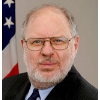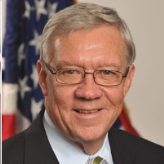The Administration for Children and Families (ACF) is a “principal operating division” of the Department of Health and Human Services (DHHS).ACF oversees and finances social and economic programs for vulnerable children and families, designed to “help them and develop toward a more independent, self-reliant life.” Targeted groups include Native Americans, persons with developmental disabilities, refugees and legalized aliens. Programs are carried out by state, county, city and tribal governments, as well as public and private local agencies. Critics argue that ACF, a relatively new administration, has been deployed as a forum to push the Bush Administration’s more conservative initiatives - funneling money to (discredited) abstinence-only programs and marriage promotion grants.
New Jersey, New York, Puerto Rico, and the Virgin Islands
Delaware, District of Columbia, Maryland, Pennsylvania, Virginia, and West Virginia
Alabama, Florida, Georgia, Kentucky, Mississippi, North Carolina, South Carolina, and Tennessee
Illinois, Indiana, Michigan, Minnesota, Ohio, and Wisconsin
Arkansas, Louisiana, New Mexico, Oklahoma, and Texas
Iowa, Kansas, Missouri, and Nebraska
Colorado, Montana, North Dakota, South Dakota, Utah, and Wyoming
Arizona, California, Hawaii, Nevada, American Samoa, Commonwealth of the Northern Mariana Islands, Federated States of Micronesia, Guam, Marshall Islands, and Republic of Palau
Alaska, Idaho, Oregon, and Washington
Welfare Reform’s Implications for the Child Welfare Systems
(by April Kaplan, Welfare Information Network)
(by Anne Farris, Roundtable on Religion and Social Welfare Policy)
- Table of Contents
- Overview
- History
- What it Does
- Where Does the Money Go
- Controversies
- Suggested Reforms
- Comments
- Leave a comment


Mark Greenberg took over in October 2013 as the acting assistant secretary of Health and Human Services for Children and Families, replacing George Sheldon.
Greenberg is a graduate of Harvard, earning a bachelor’s degree in government in 1975 and a JD from Harvard Law in 1978.
Greenberg has spent most of his career dealing directly or indirectly with victims of poverty. He started out as an attorney for Jacksonville (Florida) Area Legal Aid and moved on to the Western Center on Law and Poverty in Los Angeles.
In 1988, Greenberg joined the Center for Law and Social Policy (CLASP). There, he wrote extensively on federal social welfare policies. He was on hand for the welfare reform signed into law by President Bill Clinton, pointing out that requiring assistance recipients to find work after two years doesn’t necessarily mean that they will be able to do so. “This is not a proposal that provides or creates jobs for people. It simply pulls out the rug from under them,” Greenberg told the Associated Press in 1993. “So long as we have a society with unemployment, there are going to be people who cannot find jobs. Under this proposal, they and their children are going to be hurt.”
Greenberg joined the Georgetown University Center on Poverty, Inequality and Public Policy in 2007 and was a senior fellow at the Center for American Progress. He joined the federal government in 2009 as deputy assistant secretary for policy, focusing on Aid to Families with Dependent Children, Medicaid, and food stamps.
-Steve Straehley
To Learn More:

George H. Sheldon is the Acting Assistant Secretary for the Administration for Children and Families (ACF) under the U.S. Department of Health and Human Services. ACF oversees and finances social and economic programs for vulnerable children and families. Starting May 16, 2011, he served as Senior Advisor to David Hansell until his departure on June 17, when Sheldon became Principal Deputy Assistant Secretary and Acting Assistant Secretary at ACF.
- Latest News
- D.C. Public Schools will Teach all Second-Graders to Ride a Bike
- New Rule in Germany Limits Sales of Sex-Themed E-Books to 10pm to 6am
- What Happened to the 6-Year-Old Tibetan Boy the Chinese Government Kidnapped 20 Years Ago?
- U.S. Ambassador to Turkey Photoshops his Hair Color to Mock Turkish Mayor
- Mystery Artist Calls Attention to Unfixed Potholes by Drawing Penises around Them
The Administration for Children and Families (ACF) is a “principal operating division” of the Department of Health and Human Services (DHHS).ACF oversees and finances social and economic programs for vulnerable children and families, designed to “help them and develop toward a more independent, self-reliant life.” Targeted groups include Native Americans, persons with developmental disabilities, refugees and legalized aliens. Programs are carried out by state, county, city and tribal governments, as well as public and private local agencies. Critics argue that ACF, a relatively new administration, has been deployed as a forum to push the Bush Administration’s more conservative initiatives - funneling money to (discredited) abstinence-only programs and marriage promotion grants.
New Jersey, New York, Puerto Rico, and the Virgin Islands
Delaware, District of Columbia, Maryland, Pennsylvania, Virginia, and West Virginia
Alabama, Florida, Georgia, Kentucky, Mississippi, North Carolina, South Carolina, and Tennessee
Illinois, Indiana, Michigan, Minnesota, Ohio, and Wisconsin
Arkansas, Louisiana, New Mexico, Oklahoma, and Texas
Iowa, Kansas, Missouri, and Nebraska
Colorado, Montana, North Dakota, South Dakota, Utah, and Wyoming
Arizona, California, Hawaii, Nevada, American Samoa, Commonwealth of the Northern Mariana Islands, Federated States of Micronesia, Guam, Marshall Islands, and Republic of Palau
Alaska, Idaho, Oregon, and Washington
Welfare Reform’s Implications for the Child Welfare Systems
(by April Kaplan, Welfare Information Network)
(by Anne Farris, Roundtable on Religion and Social Welfare Policy)
Comments


Mark Greenberg took over in October 2013 as the acting assistant secretary of Health and Human Services for Children and Families, replacing George Sheldon.
Greenberg is a graduate of Harvard, earning a bachelor’s degree in government in 1975 and a JD from Harvard Law in 1978.
Greenberg has spent most of his career dealing directly or indirectly with victims of poverty. He started out as an attorney for Jacksonville (Florida) Area Legal Aid and moved on to the Western Center on Law and Poverty in Los Angeles.
In 1988, Greenberg joined the Center for Law and Social Policy (CLASP). There, he wrote extensively on federal social welfare policies. He was on hand for the welfare reform signed into law by President Bill Clinton, pointing out that requiring assistance recipients to find work after two years doesn’t necessarily mean that they will be able to do so. “This is not a proposal that provides or creates jobs for people. It simply pulls out the rug from under them,” Greenberg told the Associated Press in 1993. “So long as we have a society with unemployment, there are going to be people who cannot find jobs. Under this proposal, they and their children are going to be hurt.”
Greenberg joined the Georgetown University Center on Poverty, Inequality and Public Policy in 2007 and was a senior fellow at the Center for American Progress. He joined the federal government in 2009 as deputy assistant secretary for policy, focusing on Aid to Families with Dependent Children, Medicaid, and food stamps.
-Steve Straehley
To Learn More:

George H. Sheldon is the Acting Assistant Secretary for the Administration for Children and Families (ACF) under the U.S. Department of Health and Human Services. ACF oversees and finances social and economic programs for vulnerable children and families. Starting May 16, 2011, he served as Senior Advisor to David Hansell until his departure on June 17, when Sheldon became Principal Deputy Assistant Secretary and Acting Assistant Secretary at ACF.
- Latest News
- D.C. Public Schools will Teach all Second-Graders to Ride a Bike
- New Rule in Germany Limits Sales of Sex-Themed E-Books to 10pm to 6am
- What Happened to the 6-Year-Old Tibetan Boy the Chinese Government Kidnapped 20 Years Ago?
- U.S. Ambassador to Turkey Photoshops his Hair Color to Mock Turkish Mayor
- Mystery Artist Calls Attention to Unfixed Potholes by Drawing Penises around Them





Comments